Nigeria
Two jihadist groups have for weeks been engaged in deadly clashes in their northeast Nigeria strongholds according to security sources and residents.
Boko Haram militants have been fighting government troops for almost 14 years conquering swathes of territory in a bid to establish an Islamic caliphate in the region. Since their insurgency started, the fighters caused the death of more than 40,000 people forcing 2 million to displace, according to the United Nations.
They have also been fighting against rival jihadists from the Islamic State West Africa Province (ISWAP) group, who emerged in 2016.
Clashes initially started over ideological differences, with ISWAP -which emerge from a schism in Boko Haram- objecting to the latter's indiscriminate killings of Muslims.
Fighting has escalated in recent weeks especially at Gerere and Juma’a Toro villages on the fringes of the Lake Chad in Abadam district near the border with Niger, an area where both groups assert influence.
"We are aware of the fighting going on between the terrorists which is good for us, so we are just watching and keeping an eye on how it unfolds," a Nigerian intelligence source told AFP.
"It is hard to give a toll from both sides but the numbers are indeed huge. We are talking of more than 200 dead in Juma’a Toro alone," said the source, who asked not to be identified.
Hours of fighting
Fishermen on the islands of Lake Chad said they could hear sounds of explosions and heavy gunfire from Gerere and Juma’a Toro.
The Lake Chad basin, which stretches its shores between Nigeria, Niger, Cameroon and Chad, is a vast stretch of water, islands and swamps where jihadists hide.
"The fighting is quite intense. We hear loud explosions as the fighting rages especially at night," a fisherman told AFP.
"From the snippets we are getting, the fighting may go on for a while because Boko Haram is bringing in more weapons from its enclave on the Niger side of the lake," he added.
Recent infighting started on February 19 when Boko Haram raided ISWAP’s strongholds of Tumbun Gini and Kayowa, another fisherman familiar with activities of the jihadist groups said.
Abubakar Kannai, a senior Boko Haram commander, aided by two other senior lieutenants Bako Falgore and Abu Umamah ransacked the two ISWAP-controlled islands. They broke into a prison and set free inmates, including hostages and erring fighters from their own group, according to the source.
"It was a prolonged fight that lasted from dawn till around 5:00 pm and forced ISWAP to abandon the two camps," he said, asking to remain anonymous.
Fleeing ISWAP fighters moved out to Kukawa, Tumbun Kare and Barangu on the fringes of the lake.
"Boko Haram have (also) occupied Tumbun Ali and Kaduna Ruwa islands that were under ISWAP (control) and vowed to reclaim all the islands in the area which they claimed belonged to them before they were taken over by ISWAP," the fisherman said.
In apparent reprisals ISWAP launched attacks on Boko Haram camps in Bama, Konduga and Mafa districts on the fringes of Sambisa forest.
– Join or die –
On February 24, on the eve of Nigeria’s presidential election, Boko Haram fighters abandoned their Gazuwa camp in Konduga district (eastern Nigeria) following days of ISWAP attacks that left several dead, including women and children, said Ibrahim Liman, a leader of a local militia protecting local communities against both groups.
The exodus led to the surrender of hundreds of Boko Haram fighters and their families to the Nigerian military, including four jihadist commanders, Liman said.
ISWAP, which is aligned to the Islamic State group, rose to become the dominant threat for Nigeria’s military after the death of Boko Haram’s leader Abubakar Shekau during jihadist infighting in May 2021.
Although some Boko Haram fighters joined ISWAP to avoid execution, others surrendered to Nigerian troops while the rest fled.
Some went to northwest Kaduna and central Niger state while others joined comrades on Lake Chad islands controlled by a well-known Boko Haram leader known as "Bakura".
Action plan
Official sources in Niger said on Wednesday (Mar. 15) that last week they killed about 30 members of the Boko Haram group and detained 960 followers, most of them women and children, who had fled Nigeria.
During the last presidential campaign then-candidate Bola Tinubu promised to "fighting terror, banditry, kidnapping and violent agitation".
In his brochure entitle "Renewed Hope", he said that when elected his administration would "mobilise the totality of [our] national security, military and law enforcement assets to protect all Nigerians from danger [...] expand and improve upon the use of technology, enhance recruitment of personnel, and bolster existing agencies and systems to achieve this fundamental national security goal."
After more than a decade of insergency, it remains to be seen if that plan will prove effective and life-changing enough for millions of Nigerian citizens whose lives have been turned upside down.



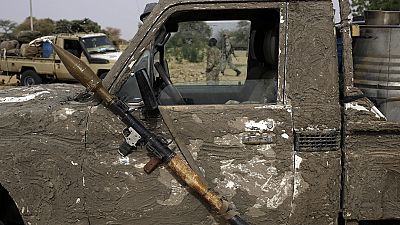

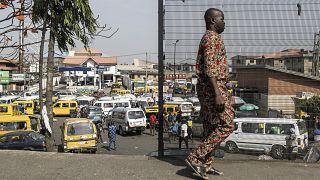

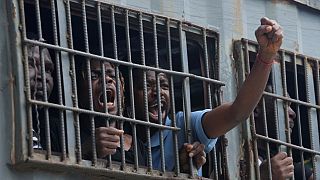
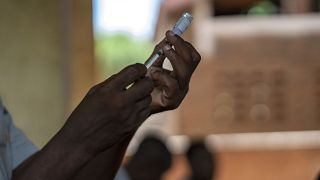
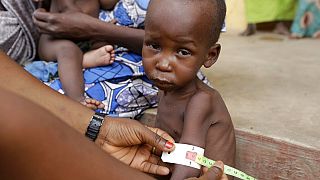
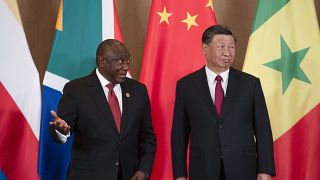
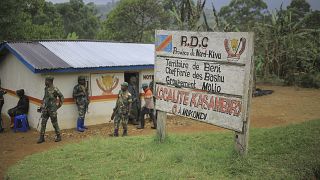
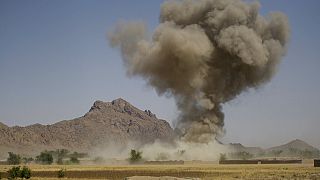
Go to video
Is Migration the only path to success for the African youth? (Africanews Debates)
00:49
Suicide bomber at café in Mogadishu claims seven lives
00:58
Nigeria's soccer team stranded in Libya, Africa Cup qualifier in doubt
01:52
Fear and food insecurity in Northeastern Nigeria on the rise
Go to video
Somalia: Egypt to deploy troops to fight Shebabs
01:04
Nigeria's fuel price challenge: second increase in one month